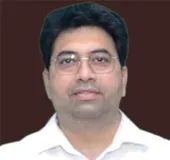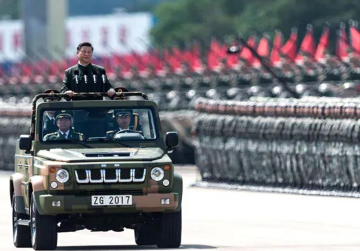The 11th BRICS summit concluded in Brazil on Friday with customary calls for strengthening multilateralism and reforming global institutions such as the UN Security Council (UNSC), World Trade Organisation, World Bank (WB) and International Monetary Fund (IMF). Initially, BRICS mainly had an economic agenda but gradually, the scope has widened to include security, health, science and technology, culture and civil society. Under the chairmanship of Brazil, more than a hundred meetings relating to BRICS were held in 2019.
From an Indian perspective, two major developments happened at the summit. One, the grouping decided to open a regional office of the New Development Bank (NDB) in India. This hopefully will give impetus to financing of projects in India’s priority areas. Second, terrorism was one of the priority areas for BRICS 2019, set by Brazilian President Jair Bolsonaro. The BRICS joint working group on counter-terrorism decided to constitute five sub working groups — one each focusing on terrorist financing, use of the internet for terrorist purposes, countering radicalisation, the issue of foreign terrorist fighters, and capacity-building.
In 2012, India, as the chair of BRICS, introduced security on the agenda, as the theme of the New Delhi summit was “BRICS Partnership for Global Stability, Security and Prosperity”. Terrorism is now a key concern of all member states, and India made good use of this opportunity as Prime Minister Narendra Modi highlighted the fact that the world loses $1 trillion due to terrorism each year. India has been facing state-sponsored cross-border terrorism from Pakistan for decades now but in BRICS, China has been shielding Pakistan and has been uneasy discussing the issue of terrorism on this platform. India hopes to continue to work with other BRICS countries to reach an understanding with China on the issue of cross-border terrorism.
Overall, while the BRICS grouping may have completed a decade, it continues to face the challenges of the lack of a binding ideology, bilateral differences, diversity in terms of socio-cultural and political systems, and China’s overwhelming presence, which reduces the space for other countries in the grouping. Given these challenges, New Delhi’s continuing engagement with BRICS has generated mixed responses.
As China rises and positions itself as the sole challenger to American hegemony, there is a growing discussion about the possible Kindleberger Trap, a situation where China may fail to provide global public goods like a clean environment and financial stability, despite being a superpower. Small countries have little incentive to contribute to global public goods and it is generally the responsibility of great powers to provide global governance. The idea of the Kindleberger Trap is also applicable to rising powers like India, which have global ambitions.
A close examination of India’s record in BRICS reveals that New Delhi has used its membership to make a substantial contribution to the international financial architecture, while also making efforts to address glaring gaps in areas such as counter-terrorism, the fight against climate change and UNSC reform. India is not a free-rider in a system of global governance dominated by the West, and continues to provide a vision of global governance.
India was the main BRICS country behind the establishment of the NDB and proposed the idea at the fourth BRICS summit in New Delhi. The NDB was established in 2014 with all five BRICS members contributing equal amounts of economic capital and having equal voting rights, with no provision of veto power. The NDB also intends to provide non-conditional financing, unlike the WB and IMF. This reflects true equality in a global financial institution, and the NDB attempts to rectify the North-South divide that exists in the governance of the WB and IMF to make it more inclusive.
While it might be tempting to position the NDB as a challenge to the West, New Delhi seeks reforms in global governance through BRICS and does not have an anti-West agenda. As External Affairs Minister S Jaishankar recently suggested, India could be viewed as a south-western power, a blend of the West and the developing world. Through BRICS, India seems to be mediating between the two identities.
India’s efforts to seek changes in international financial governance through BRICS have been successful, as China also shares this objective with India. The story has been one of missed opportunity in areas like UNSC reform, counter-terrorism and the fight against climate change. BRICS may have raised the issue of UNSC reform but this is more declaratory in nature than a serious attempt to overhaul the UNSC. This reflects that BRICS is interested in selective reform of the system, as its members have developed vested interests in the existing system. That is why the grouping seeks to reform global financial governance but is divided over UNSC reform. On the issue of terrorism, India has tried to project its unique approach, in which New Delhi is not selective and does not differentiate between good terrorists and bad terrorists, since they all pose a threat to humanity.
Climate governance too has been highlighted as an area where BRICS members have a lot of potential to contribute, but so far, that has not happened. Russia has been ambivalent towards climate change and has recently joined the Paris Agreement. India has taken initiatives outside the grouping to project itself as a leader in the fight against climate change, such as the launch of the International Solar Alliance in 2015 with France. Apart from the global agenda, BRICS allows New Delhi to send out messages about its foreign policy priorities, underscoring its desire to be part of issue-based coalitions.
At a different level, BRICS membership elevates India’s global profile. China may still not be interested in de-hyphenating India and Pakistan, but India’s BRICS membership automatically de-hyphenates India and Pakistan, while it casts India and China as equals. So, even as challenges abound in the BRICS trajectory, the grouping will continue to be of some instrumental value to India in the years ahead.
This commentary originally appeared in Business Standard.
The views expressed above belong to the author(s). ORF research and analyses now available on Telegram! Click here to access our curated content — blogs, longforms and interviews.




 PREV
PREV



